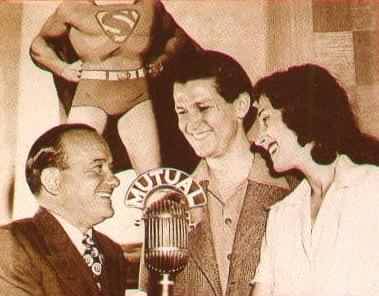
At the heart of superhero comics?
October 19th, 2010 Posted by Esther Inglis-ArkellI read over David’s Gamble a Stamp 2 a while ago, and came across a sentence that brought me up short. Re-reading it today, I have the same problem with the same sentence. That sentence?
At the heart of almost every hero is that directive: “save us.”
There are a lot of different kinds of superhero comics, especially now, when everyone is looking for a fresh take on the same concept. A lot of comics focus on a lot of things. Reading them, however, the impression I get from the books has never been, “save us.” That’s backwards. The directive at the heart of every comic is this: “I can save you.” It’s not altruism, it’s egotism.
I remember seeing a documentary about comics in which Siegel and Shuster talked about the inspiration for creating Superman. They talked about the adventures or the heroism, but mostly they talked about how they daydreamed about how some guy who was a total loser in life turned out to secretly be the most fantastic guy ever. The insults of everyday life didn’t matter, because they were all part of a game he was playing as one identity. As the other, he didn’t just kick around thugs, he went after evil businessmen, crooked senators, and Hitler. And he defeated them all. Easily. Superman’s entire selling point was this; “Give me enough power and put me in charge, and I will fix everything.” Haven’t we all felt that way?
As times changed, and problems became more difficult, Superman was joined by Spider-Man. Things weren’t as easy for him. While Superman’s rotten civilian life was part of a game, Spider-Man’s personal defeats were real. He suffered. But he suffered because he chose to use his power to put things in order. Spider-Man comics acknowledged a personal cost, but it was a personal cost which lead to victories.
The defeat of evil isn’t really a goal in superhero comics. It’s a means to an end. This guy is kicking and punching people. This kid is off having adventures instead of going to school. This woman is ditching her boyfriend to run off into the night and prowl. Oh, they don’t want to. Who would want to do such a thing? They have to. Because they must fight evil.
There are few comic books that don’t follow this principle. Even the ‘darker’ books, which make fun of the supposed ‘supers,’ and have amoral characters, have those characters fight unsympathetic people. Sometimes they’re anonymous annoyances, sometimes they’re evil characters with respectable faces, but almost always they have forced, *forced*, the heroes out of the peaceful life they once had and made them go on these perilous adventures.
In this way, the sexuality of comics – also discussed in the that entry – makes sense. Oh no! I have to go through an orgy! Oh no! The costume of the Pink Lanterns (come on. they’re pink.) forces my girlfriend (or me) to show of her (or my) absolutely perfect body! Why, oh why, is this happening?
I’m not saying this is a terrible thing. A little ego boost, a little identification, is pretty fun. And these concepts do allow creators to tell wonderful stories that often have intelligent points and emotional depth.
But no one reading them needs to be saved. If you have the time to follow the plot of these stories, the access to them, and the money to buy them, you are already saved compared to a huge chunk of the rest of the world. You are one of the most saved people on earth. You don’t read them to be saved. You read them because you want to be the saviour.

